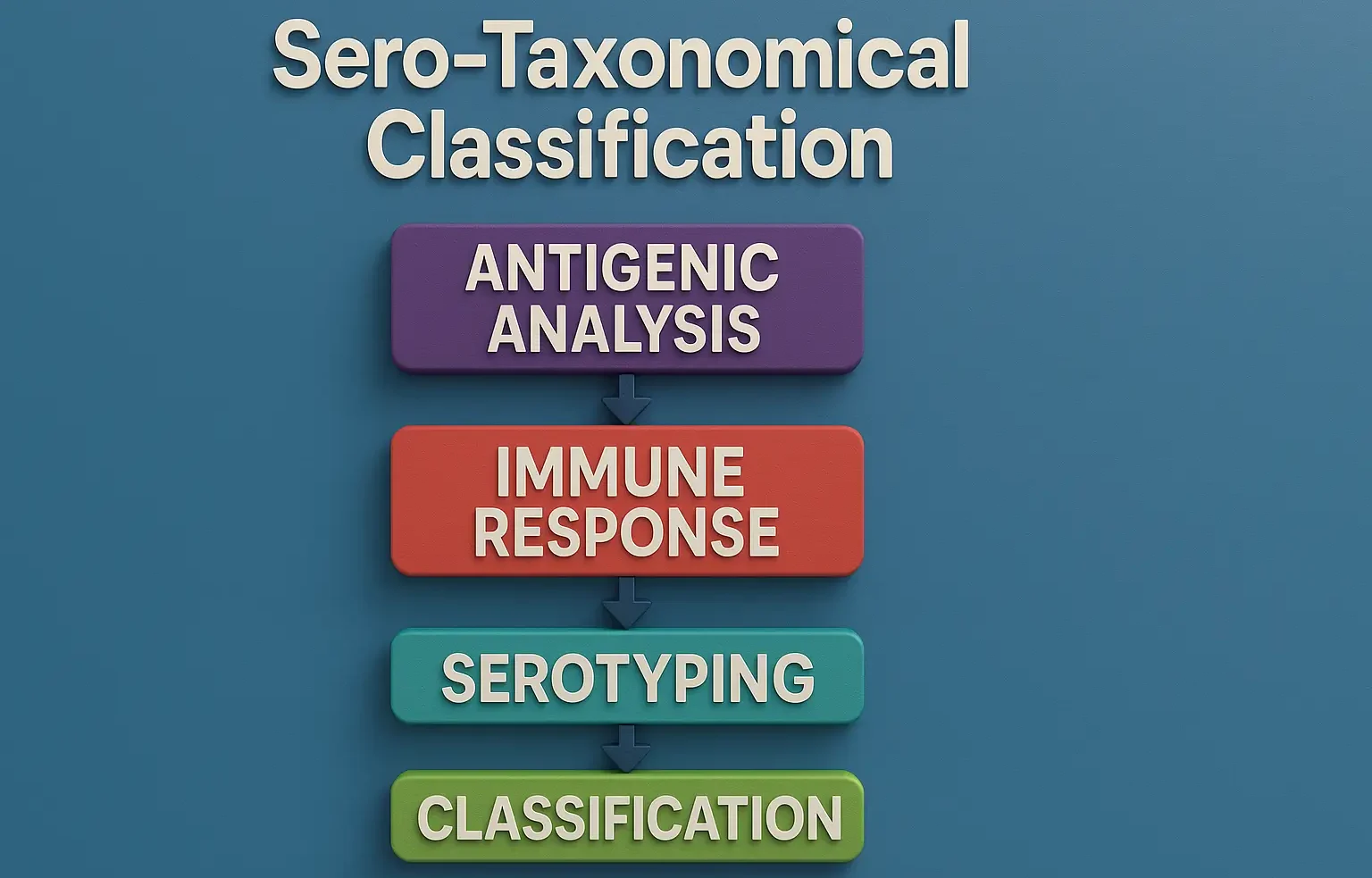- Sero-Taxonomical Classification: Identifies plant species using antigen–antibody reactions for precise taxonomic grouping.
- Sero-Taxonomical Classification: Combines serology with taxonomy to reveal evolutionary relationships among plants.
- This method uses serological (antibody-antigen) reactions to classify drugs.
- It is a modern approach used mainly in biotechnology, genetic research, and plant authentication.
How It Works?
- Uses serological techniques (antigen-antibody reactions) to detect similarities between plant species.
- Helps in plant authentication by detecting specific proteins or enzymes.
- Useful in biotechnology for producing recombinant drugs and vaccines.
Examples:
- Plant proteins and enzymes are studied to determine relationships between medicinal plants.
- Used in vaccine production (e.g., plant-based vaccines).
Advantages:
- Helps in scientific plant classification based on immunological properties.
- Useful for biotechnology and genetic studies.
Disadvantages:
- Requires advanced laboratory techniques.
- Not widely used in general pharmacognosy.
Click Here to Watch the Best Pharma Videos

